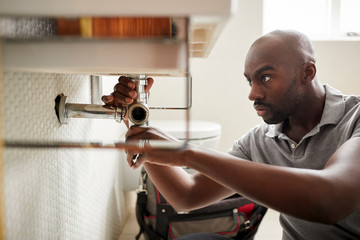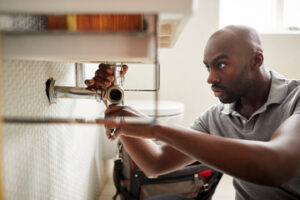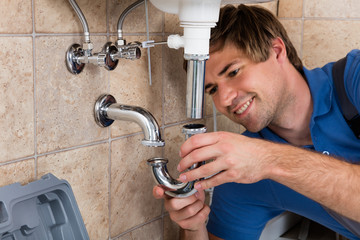Some plumbing problems are best left to the experts. Blocked drains are one of them. Trying to solve it alone may cost you more in the long run, especially if you are dealing with a large blockage.
 A plumbing expert at Clearwater Plumbing is a highly skilled individual who is knowledgeable about the construction and utility systems of a house or building. These experts may also know construction defects, cost estimation, claims, and insurance coverage.
A plumbing expert at Clearwater Plumbing is a highly skilled individual who is knowledgeable about the construction and utility systems of a house or building. These experts may also know construction defects, cost estimation, claims, and insurance coverage.
Plumbers are also knowledgeable in other areas of construction and utility systems. This can help you in personal injury and construction claims cases.
If you broke a bone or got a serious wound, you would not try to set the broken bone yourself or sew up the wound. Instead, you would go to a health care professional trained and experienced in these types of injuries. Similarly, you should hire a plumber who is skilled in handling a variety of plumbing problems. A qualified plumber can save you money, time, and stress.
These professionals typically possess a wide range of tools that they can use to diagnose and repair problems. Some of these tools include pipe wrenches, hydraulic cutting machines, pipe bending machines, flaring pliers, and joining tools such as crimp tools and soldering torches. They can also use video cameras to examine pipes and detect any hidden leaks or risks.
The plumbing expert’s expertise is essential for any home or commercial property owner. They can help with everything from septic tank installations to water bill troubleshooting and repairs. In addition, they can provide advice and guidance on how to prevent future issues.
In addition to being skilled in the field of plumbing, these experts are often qualified in other areas, such as engineering, HVAC, and construction management. They can provide expert testimony in cases involving construction damages, insurance claims, and personal injury.
Whether your commercial property has slow drains or you are experiencing high water bills, a plumbing expert can help. They can determine the cause of the problem and offer a solution that will work for your business.
A Plumbing Expert can help with a variety of plumbing-related issues, including sewer backflow, clogged pipes, water heater repair, and more. They can even help you find a contractor who is capable of doing the job right. It is important to check a plumber’s credentials, education, and experience before hiring them. The best way to do this is by reaching out to your network or consulting with other professionals, such as builders and real estate agents.
If you break your arm or get a deep gash, you would go to the emergency room to have it taken care of. Likewise, when your plumbing breaks down, you should call a plumber to fix it. If you want to save money on repairs, it is important to choose an experienced plumbing expert. This will ensure that you are getting the best services possible and avoid paying for unnecessary repairs.
A plumbing expert has years of experience and can handle both commercial and residential projects. They can install, inspect, and repair all types of plumbing systems, including sewer lines and water heaters. They can also handle backflow issues, plumbing code violations, and sewer backups. They are also familiar with a variety of plumbing materials and equipment, such as pipes, valves, fittings, and fixtures.
It is recommended to have a regular maintenance inspection of the plumbing system in a home or office, which can help identify any potential problems early on. These can include low water pressure, clogged drains, leaky faucets, or foul smells from the toilets and sinks. Getting a plumbing professional to perform these routine inspections can help prevent costly repairs in the future.
In addition to being a plumbing expert, this individual has over 35 years of experience as an engineer in the design and specification of piping, duct, and mechanical systems for new and retrofit commercial and industrial facilities. He has worked on projects ranging from base building to museum renovations.
He has a BSE in Civil Engineering and an MSE and Ph.D in Civil and Environmental Engineering from Utah State University. He has over 40 articles published in the area of Civil and Environmental Engineering and is a registered Professional Engineer in Utah.
Joseph Jaremko is a highly-qualified plumbing expert, having completed his apprenticeship in 1976 and becoming a red seal master plumber. He is also a first-class gas fitter, a red seal steamfitter and pipefitter, and a fourth class red seal power engineer. He has consulted with numerous law firms and has testified as an expert witness in both depositions and trials. He has also worked directly with insurance companies.
When you’re looking for a plumbing expert, it is important to consider their insurance coverage. A good plumber’s insurance package will help you protect your business from financial challenges caused by lawsuits or other mishaps. Many insurance companies have experience with plumbing businesses and can offer a wide variety of policies to meet your specific needs.
Typically, a plumber’s insurance policy will include general liability insurance. This type of insurance covers claims for third-party bodily injury and property damage. For example, if a client trips over a pipe left on the floor by your employees during a job and breaks their wrist, you could be sued for medical expenses and other damages. Having a plumber’s insurance policy will cover these costs and also help you pay for legal fees and settlements in the event of a lawsuit.
In addition to the standard general liability insurance, some plumbing experts may also want to consider professional liability insurance. This is sometimes known as errors and omissions insurance. This type of policy covers the cost of legal fees if your company is sued for mistakes or negligence in performing work on behalf of a client. For example, if your employees are working on a septic system and make a mistake that causes the tank to fail, this type of insurance will help pay for any repairs or replacements needed.
Another type of insurance that is often recommended for plumbers is business interruption insurance. This type of policy will cover any loss of income or revenue that occurs as a result of the interruption of your business operations. This could be due to a fire, natural disaster, or another issue out of your control.
Plumbing contractors will also need to consider tools and equipment insurance. This type of policy will cover the cost of replacing or repairing any tools and equipment that are lost, stolen, or damaged while on a job. It will usually also cover the cost of rented equipment, such as portable toilets. Some insurance companies also offer a business owner’s policy for plumbers, which bundles general liability and property coverage into one comprehensive policy.



 A Residential
A Residential 